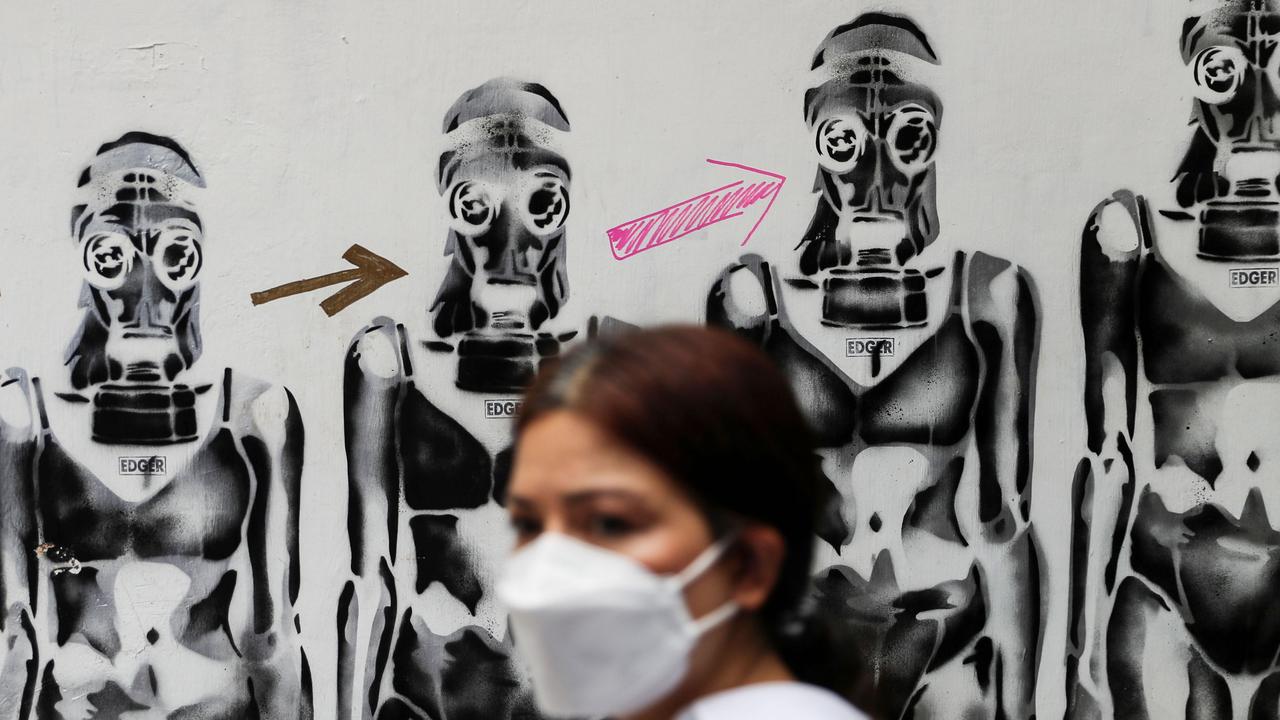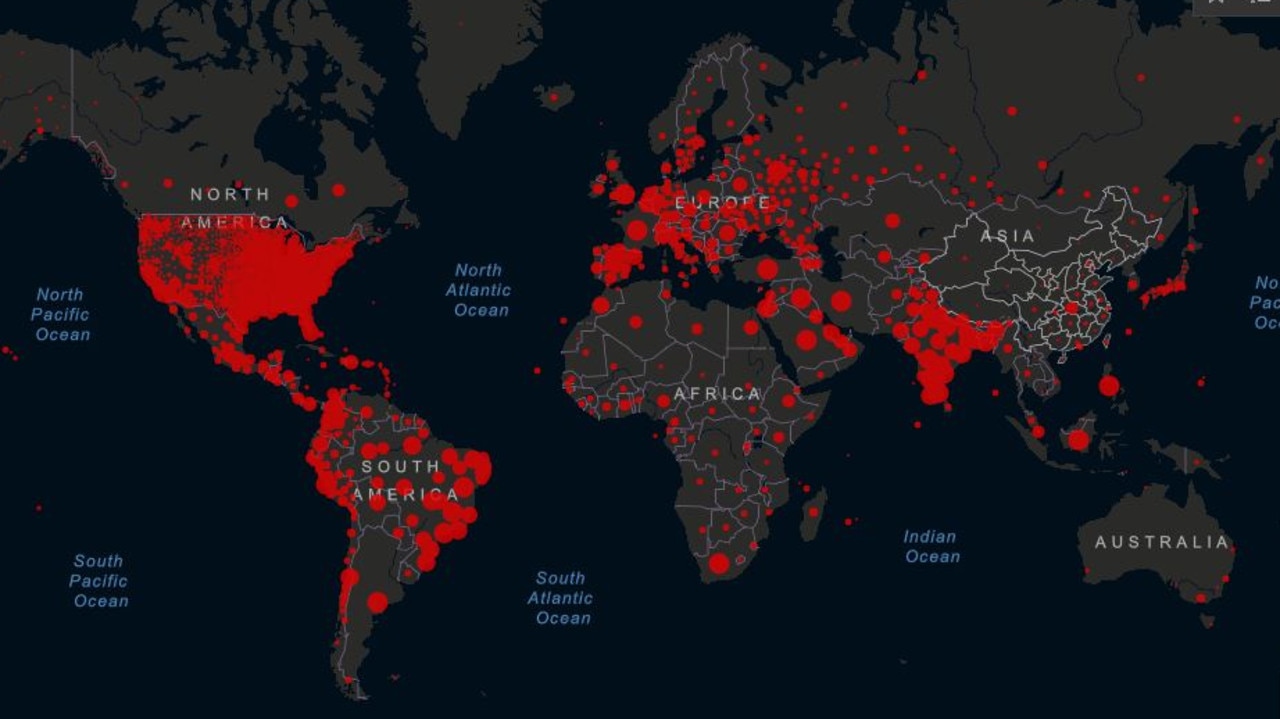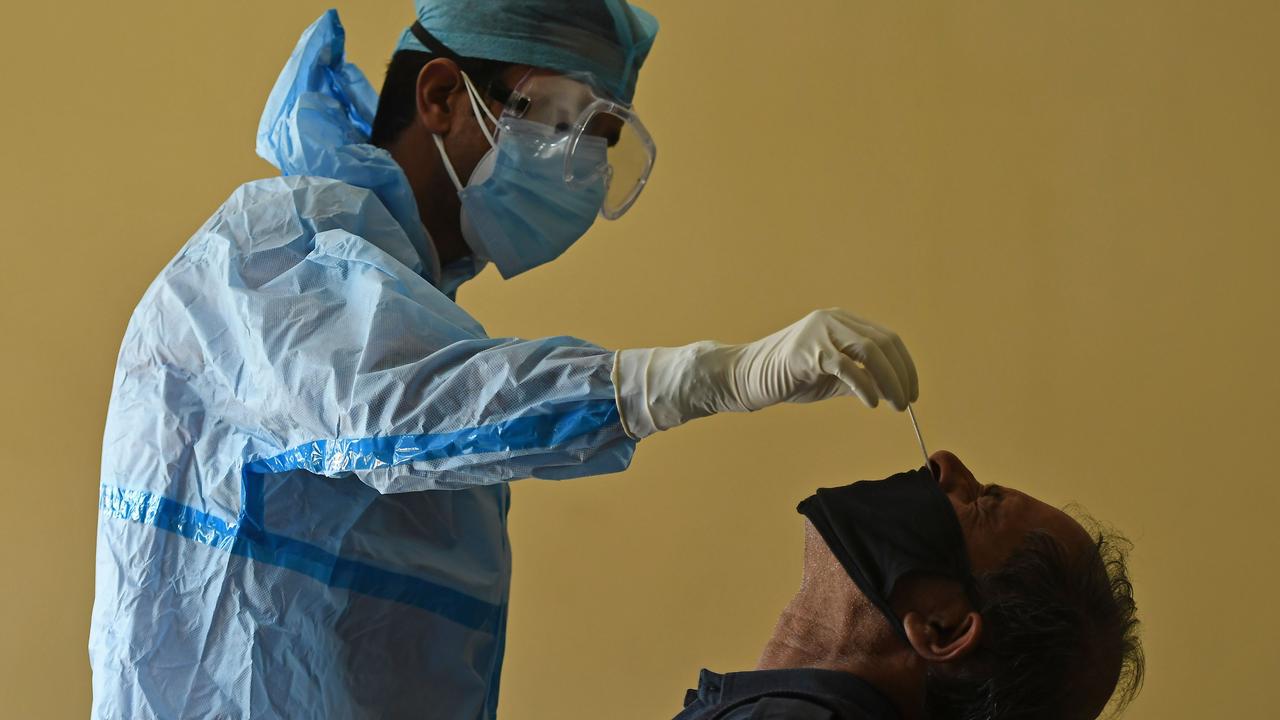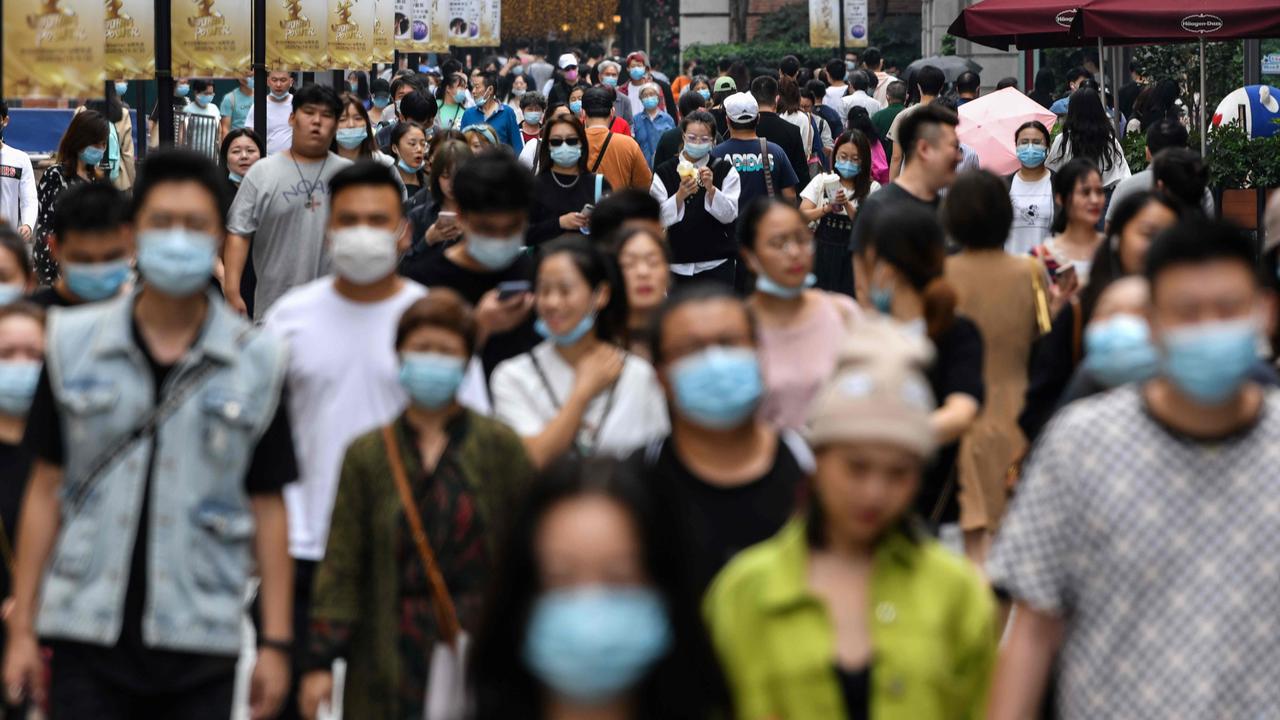WHO estimates 10 per cent of the world’s population has COVID-19
More than 35 million cases of COVID-19 have been recorded around the world, but the WHO says the real picture is much worse.

Roughly 10 per cent of the world has been infected by the new coronavirus — way more than has been recorded — the World Health Organisation (WHO) estimates.
To date, more than 35 million cases of COVID-19 have been registered worldwide, including some 1.04 million who have died, based on official sources.
But the WHO now estimates that around a tenth of the planet’s 7.8 billion or so people have already been infected since the virus first surfaced in China late last year — more than 20 times the official count.
“Our current best estimate tells us that about 10 per cent of the global population may have been infected by this virus,” WHO emergencies director Michael Ryan told a special meeting of the agency’s executive board.

He stressed that infection levels varied “from urban to rural, it varies between different groups.” “But what it does mean is that the vast majority of the world remains at risk,” he warned.
EUROPE’S SECOND WAVE WORSENS
The WHO warning comes as Europe continues to be hit by a second wave of the virus.
Paris bars and cafes will shut for two weeks after France reported nearly 17,000 new coronavirus cases on Saturday alone, the highest daily number since the country began widespread testing.
Britain remains the worst-hit European country, passing its latest milestone of 500,000 confirmed coronavirus infections on Sunday.
Neighbouring Ireland for its part is mulling a nationwide lockdown after a surge of new cases.
The National Public Health Emergency Team recommended that the entire country reprise the highest level of COVID-19 restrictions imposed during the original lockdown in March.
Russia recorded 10,888 new cases on Sunday — close to a peak reached in May — but stopped short of reimposing a new lockdown.
Spain has decided partial lockdowns for two more cities, Leon and Palencia, after residents of Madrid and nine nearby towns were barred from leaving city limits for any reason other than work, school or medical and legal appointments.

Meanwhile Madrid’s regional authorities have criticised the two weeks of restrictions as too stringent, healthcare experts have said they do not go far enough.
‘WAKE-UP CALL’
WHO chief Tedros Adhanom Ghebreyesus told Monday’s meeting that the pandemic should serve as a “wake-up call for all of us.”
“We must all look in the mirror and ask what we can do better.” he said.
Mr Tedros pushed back at criticism of the UN agency’s handling of the pandemic, insisting it from the start had “worked around the clock to support countries to prepare and respond to this new virus.”
Wearing a black face mask with a colourful pattern on the sides, he also vigorously defended the reform process at the organisation over the past three years, but acknowledged it should be sped up.
“We’re not on the wrong path. We’re on the right path, but we need to go faster,” he said.
The executive board, which is made up of representatives from 34 countries who are elected for three-year periods, is meeting for two days this week for only its fifth-ever special session.
It aims to evaluate progress towards implementing an “impartial, independent and comprehensive evaluation” of the WHO’s response to the pandemic, as requested by member states.
‘NEW IDEAS’
Mr Tedros said countries were being encouraged “to come with new ideas,” insisting that “we have to be open to change and we have to implement changes now.”
He stressed, for instance, the need for “robust peer-review” of countries’ records on health.
He suggested that the Universal Periodic Review at the UN Human Rights Council, where each country’s rights situation is evaluated every few years, could serve as inspiration.
The WHO has met with harsh criticism for its pandemic response, in particular from the United States, which under President Donald Trump has begun withdrawing from the organisation it accuses of sounding the alarm too late.

Mr Tedros has flatly denied that, insisting that the WHO had acted swiftly as soon as it received word of the new virus, and pointing out that it had declared the highest level of alert on January 30.
The organisation has also been criticised for slow or changing recommendations on the best measures to take in halting the spread of the virus, including on the importance of wearing face masks.
Mr Tedros stressed the WHO’s massive effort to provide up-to-date and accurate information in the face of a rapidly-developing global crisis.
“Ten months ago, this virus was completely unknown to the world,” he said.
“We have now published more than 400 guidance documents for individuals, communities, schools, businesses, industries, health workers, health facilities and governments.
“WHO doesn’t have the mandate or the capacity to do everything,” he said, adding though that it was uniquely positioned to co-ordinate the global response.



